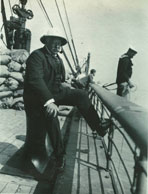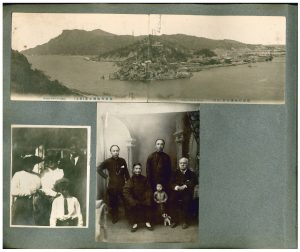Sir Patrick Manson, (October 3rd 1844 – April 9th 1922) was not only instrumental in tropical medicine here in the UK, but also had great influence and involvement with Hong Kong (at the time, a crown colony since 1831).
Sir Patrick Manson was in residence in Hong Kong between 1883 and 1889. While living in Hong Kong, he lived on the Peak (also known as Victoria Peak) which is on the western part of Hong Kong Island. This was not Sir Patrick Manson’s first trek to the far east, as he had previously had lived in Formosa (now Taiwan) in 1866 where he spent five years before being transferred to Amoy (Xiamen) where he spent a further thirteen years.
While in Hong Kong in 1885, Sir Patrick Manson discovered and accurately described the disease we now know as Sprue. At this time, he was also working on malaria research. A year later, on September 3rd 1886 he founded the Medical Society of Hong Kong, in which he called together medical practitioners of Hong Kong and China to discuss matters of mutual interest. The same year, Sir Patrick Manson also suggested alongside his friends (including James Cantlie) and colleagues the founding of a College of Medicine in Hong Kong for the teaching of Chinese students (which later became the University of Hong Kong).
One of the first students of the school was Sun Yat-Sen (who later became the first president of China). The school encouraged the application and acceptance of western style medicine in Hong Kong, which was still accustomed to traditional Chinese medicines. It is clear that Sir Patrick Manson was committed to teaching medicine and to education, as can be seen from the use of his influence to create a medical school and Hong Kong and later, upon his return to the UK the founding of the London School of Hygiene & Tropical Medicine. This committment to education and his frequent and extensive travels have absolutely earned him the title of ‘Father of tropical medicine’.







![Sir Patrick Manson in his study at 21 Queen Anne S[6454]](http://blogs.lshtm.ac.uk/library/files/2017/05/Sir-Patrick-Manson-in-his-study-at-21-Queen-Anne-S6454-300x284.jpg)


